Table of Contents
Tryptophan is the sole precursor of serotonin. L-Tryptophan’s role in brain serotonin synthesis is critical for mood, behavior and cognition.
Serotonin is often referred to as the “happiness molecule”. Low serotonin levels can result in pain, insomnia, depression, seasonal affective disorder, and chronic fatigue.
For your body to manufacture serotonin, it needs an adequate supply of the natural amino acid Tryptophan. As a nootropic supplement, Tryptophan is used for anxiety, ADHD, depression, insomnia, memory loss, pain, and eating disorders.[i]
A lack of bioavailable Tryptophan in your body can have a big impact on your life.
Tryptophan helps:
- Anxiety & Mood. Tryptophan is an essential amino acid needed to synthesize serotonin which plays a role in mood, sleep, learning and even appetite control.
- ADHD. Low levels of Tryptophan and serotonin imbalances in the brain are associated with ADHD. Studies have found that children with ADHD have 50% lower than average levels of Tryptophan.[ii]
- Neurotransmitters. Low levels of Tryptophan can result in short- and long-term memory loss. Supplementing with Tryptophan has been found to improve memory in healthy adults.
Overview
Tryptophan is an essential amino acid and precursor to serotonin, melatonin and niacin (Vitamin B3) in your body.
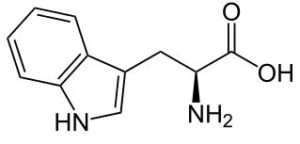
The enzyme Tryptophan hydroxylase converts Tryptophan into 5-HTP (5-hydroxytryptophan).
The decarboxylation of 5-HTP to serotonin is dependent on the presence of Vitamin B6, also called pyridoxal 5’-phosphate (P5P).
The further conversion of serotonin into melatonin requires the presence of SAM-e (S-Adenosyl-L-methionine).
Tryptophan is found in foods like oats, bananas, dried prunes, milk, tuna, cheese, bread, chicken, turkey, peanuts and chocolate.
Eating food containing Tryptophan will increase levels of this amino acid in your body. But not necessarily boost serotonin levels in your brain. Here’s why…
Tryptophan is one of 8 essential amino acids and has the lowest concentration in the body of all the amino acids. Tryptophan requires and competes for active transport to the brain. And competes for the same receptors as the other amino acids.
Research has also found that serotonin levels are enhanced by carbohydrates in your meals because insulin release accelerates the serum removal of some of the amino acids that Tryptophan is competing with.
And if your meal has a higher percentage of proteins, it also slows serotonin elevation in your brain.[iii]
Since Tryptophan from food has issues working its way to your brain to make serotonin, why not skip that step and supplement with 5-HTP instead? Tryptophan and 5-HTP both penetrate the blood-brain barrier. And 5-HTP is the intermediate step in serotonin synthesis.
See my post on 5-HTP for more on why supplementing with 5-HTP instead of Tryptophan is not such a good idea.
How does Tryptophan work in the Brain?
Tryptophan boosts brain health and function in several ways. But two in particular stand out.
- Tryptophan boosts memory. Tryptophan’s main nootropic mechanism of action is as a precursor to the neurotransmitter serotonin. Other neurotransmitters such as melatonin and beta-endorphin increase following Tryptophan supplementation.[iv]
Research shows that Tryptophan and serotonin play a significant role in memory. Enhanced brain serotonin has been shown to improve cognitive performance in animals and humans. And decreasing levels of serotonin through Tryptophan depletion impairs cognition.
A study done in Pakistan assessed memory in rats following Tryptophan administration. The rats received Tryptophan doses of 50 and 100 mg/kg of body weight for 6 weeks. The study showed significant improvement in memory of rats following both doses of Tryptophan.[v]
- Tryptophan enhances mood. As a precursor to serotonin, Tryptophan can have a significant effect on mood. Supplementing with Tryptophan has been found to increase not only serotonin, but growth hormone and prolactin as well.
Researchers infused 11 healthy male subjects with doses of 5, 7.5 and 10 grams of Tryptophan. And then monitored their hormonal and behavioral responses.
Tryptophan produced significant effects on mental and physical sedation but did not increase levels of tranquilization. Tryptophan provided a calming effect without knocking these guys out even at high doses.[vi]
How things go bad
As we get older, our brain chemistry and energy metabolism changes.
↓ Tryptophan levels decline
↓ Tryptophan hydroxylase levels decline
↑ Stress, insulin resistance and age increase
↓ Magnesium and Vitamin B6 levels decline
↓ Neurotransmitter levels decline
↓ Concentration, working memory and executive function decline
↓ Appetite regulation, energy and alertness decline
All of these changes can happen at an age. And are influenced by declining Tryptophan levels. Very little dietary Tryptophan is available for protein and serotonin synthesis. And for many people this can be a problem.
Anxiety, depression, ADHD, memory loss, binge eating and a host of other mental and physical issues have been correlated with low Tryptophan levels.
Tryptophan benefits
Just living in our modern society seems to leave us irritable, stressed-out, and anxious. Worst case is problems sleeping, depression, aggressive behavior, reduced motivation, pain and even suicidal thinking.
 And all have been traced to not enough serotonin in our brain.[vii]
And all have been traced to not enough serotonin in our brain.[vii]
Serotonin, the happiness molecule relies on an adequate supply of Tryptophan for synthesis. Researchers now recognize that the role serotonin plays in psychiatric and behavior disturbances comes from Tryptophan depletion.[viii]
Tryptophan hydroxylase is the rate-limiting enzyme needed for serotonin production. And is involved in the conversion of Tryptophan to 5-HTP (5-Hydroxytryptophan) needed to make serotonin.
This enzyme (Tryptophan hydroxylase) can be inhibited by stress, insulin resistance, magnesium or Vitamin B6 deficiency, or increasing age.
Tryptophan and 5-HTP can penetrate the blood-brain barrier. But Tryptophan requires active transport and competes for the same receptors with other amino acids including tyrosine, phenylalanine, valine, leucine, and isoleucine.[ix]
To complicate things even more, serotonin levels are enhanced by carbohydrates in our diet because insulin release accelerates serum removal of the amino acids competing for Tryptophan transport. And high levels of protein in our diet slows increase in serotonin.[x]
So now you know why it’s helpful to add supplemental L-Tryptophan to your nootropic stack.
How does Tryptophan feel?
Many try L-Tryptophan the first time to cure insomnia or as an alternative to prescription sleep meds.
Dosing L-Tryptophan in the evening will typically ensure you’ll feel great the next day. You should have more energy for working out.
Anxiety levels should decrease. Happiness levels should rise. Tryptophan could help with memory. Music will sound better. Feelings of self-esteem will improve.
Some neurohackers report being able to taper off prescription antidepressant meds by supplementing with L-Tryptophan.
Tryptophan Clinical Research
5-HTP and Tryptophan are natural alternatives for the treatment of depression. And often used as alternatives to prescription antidepressant treatments because they don’t come with the side effects associated with antidepressant drugs.
But as neurohackers we don’t have a lot of research to help us decide if supplementing with Tryptophan makes sense. (If we base our decisions on clinical trials).
Much of the research looks at finding out if low levels of Tryptophan are associated with depression and poor cognition. But there is very little clinical evidence that supplementing with Tryptophan will help reverse low Tryptophan levels. And if adding this nootropic to our stack will boost mood and cognition.
Researchers at the University of Queensland in Australia decided to comb through the research to find out if clinical trials supported the natural health claims of using 5-HTP and/or Tryptophan for depression.
The team located 108 trials of which only 2 studies involving a total of 64 people had sufficient data to qualify. The team concluded that the very limited data showed 5-HTP and Tryptophan better that placebo for alleviating depression. But that larger and more studies were needed before their widespread use could be recommended.[xi]
Low Tryptophan = Depression and Poor Cognition
20 patients in remission or partial remission from depression were studied in a double-blind, crossover design trial. Tryptophan was artificially depleted in these patients so scientists could look at the effects on cognition and mood.
The research team found what we see in real life. Lower levels of Tryptophan had a negative effect on mood, their ability to process positive information, and attention.[xii]
Tryptophan Helps Manage Depression
Serotonin has been recognized as the neurotransmitter that is key to managing depression for the last 30 years. Most of the prescription drug therapies for depression work by raising serotonin levels at the relevant synapses.
We also know that Tryptophan is the immediate precursor to serotonin in the brain. So researchers, using a “what came first, the chicken or the egg” approach decided to find out if low serotonin levels or low Tryptophan levels were to blame for depression symptoms.
Researchers in China analyzed levels of Tyrosine, Tryptophan and serotonin in patients with major depressive disorder. And found that all three were decreased in depressed patients. (Note that Tyrosine is a precursor to dopamine in the brain).[xiii]
The Center for Addiction and Health in Toronto conducted a randomized, double-blind, placebo-controlled trial with 30 depressed individuals. Treatment was fluoxetine (Prozac®) 20 mg per day, 2-4 grams of Tryptophan per day or a placebo for 8 weeks.
Mood was assessed using the Hamilton Depression Rating Scale and the Beck Depression Index during the trial. During the 1st week there was a significant decrease in depression in those who used fluoxetine or Tryptophan.
At 4 weeks the research team recorded a disruption in sleep patterns for those using fluoxetine or a placebo. But not the Tryptophan group.
The team concluded that combining 20 mg of fluoxetine with 2 g of Tryptophan was a safe protocol for treating depression. Patients experienced a rapid decrease in depressive symptoms. And the combination had a protective effect on sleep patterns.[xiv]
DO NOT TRY THIS AT HOME. The trials combining Tryptophan with SSRI’s, SNRI’s and MAOI’s are all done under professional supervision. But remember, Tryptophan is a precursor to serotonin. And antidepressant meds also boost serotonin in the brain. When combined, serotonin levels are boosted even more.
Herein lies the problem. If you increase serotonin too much, you put yourself in real danger of Serotonin Syndrome. Which can lead to all kinds of nasty side effects. Including death.[xv]
DO NOT combine Tryptophan with antidepressant meds unless you are doing so under the careful supervision of a doctor. It is much too dangerous attempting this on your own.
Tryptophan Boosts Exercise Performance
Ever wondered why you cut a workout session short even though physical fatigue wasn’t an issue? Researchers found it could be due to low Tryptophan levels. And its effects on serotonin in your brain.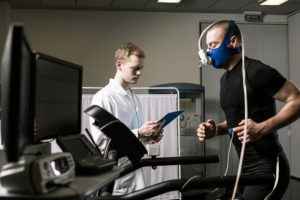
20 healthy young men aged 21 years used a cycle ergometer at about 50% of their physical capacity for 10 minutes followed by maximum intensity exercise for another 30 minutes. This sequence was repeated 3-times, and after the 4th series, each participant continued at the highest speed they could sustain for 20 minutes.
This protocol was performed twice: once with and once without Tryptophan. Researchers found peak power output during the last 20 minutes were higher on trials performed with Tryptophan than those who performed on a placebo.[xvi]
Another trial in Spain recruited 12 healthy sportsmen who ran on a treadmill until exhaustion. Once while supplementing with Tryptophan and once with a placebo.
Total exercise time, perceived exertion rate, maximum heart rate, peak oxygen consumption, pulse recovery rate, and excess post-exercise oxygen consumption were determined during the two trials.
Total exercise time was nearly 50% greater after receiving Tryptophan than after receiving a placebo. Perceived exertion rate was lower when using Tryptophan.
The researchers concluded that the longer exercise time could be due to increased pain tolerance as a result of Tryptophan supplementation.[xvii]
Tryptophan Relieves Symptoms of Seasonal Affective Disorder
Seasonal Affective Disorder (SAD) is a form of depression experienced by many during the winter months. Symptoms include difficulty waking, decreased energy, weight gain, carbohydrate craving, difficulty concentrating, decreased libido, withdrawal, anxiety, depression and irritability.
The first order of treatment is often light therapy. But many do not respond to light therapy typically because of a mutation in the melanopsin gene and the associated signaling pathway between the retina and the pineal gland.[xviii]
The pineal gland in your brain is your source of melatonin which influences sleep cycles. Melatonin is synthesized from serotonin which is synthesized from Tryptophan.[xix]
So if light therapy doesn’t work, possibly supplementing with Tryptophan to stimulate production of serotonin and melatonin could be effective.
Researchers at the University of British Columbia in Vancouver, Canada set out to find if Tryptophan could help those with Seasonal Affective Disorder (SAD) where light therapy failed.
Patients were treated for 2 weeks using light therapy. Those who did not respond to light therapy were treated with 1 g Tryptophan 3-times per day for 2 weeks while continuing light therapy.
The addition of Tryptophan resulted in a significant reduction in depression. 64% of the patients in this study showed very good clinical responses to the combined treatment with minimal side effects.[xx]
Tryptophan Recommended Dosage
Recommended dosage of Tryptophan is 500 – 1,000 mg per day for cognitive benefit.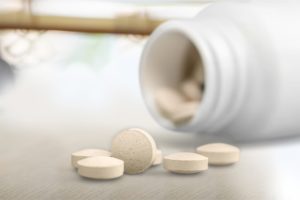
The University of Michigan Health Department recommends much higher doses for:
- Lowering appetite and cravings: .5 – 2 grams per day
- Depression or Anxiety: 2 – 6 grams per day (with medical supervision)
- Chronic pain or migraines: 2 – 4 grams per day in divided doses
- Sleep disorders or insomnia: 1 – 2 grams at bedtime[xxi]
Tryptophan is a precursor to the neurotransmitter serotonin in the brain. Tryptophan hydroxylase is the rate-limiting enzyme needed for serotonin production. And requires magnesium and Vitamin B6 to synthesize serotonin.
Tryptophan is also a precursor to the synthesis of Vitamin B3 (niacin). So if you don’t have enough niacin in your body, supplementing with L-Tryptophan will not efficiently produce serotonin because it’s being used to produce niacin. Which also depletes stores of the vitamin cofactors B1, B2 and B6.
So supplement L-Tryptophan with a B-Vitamin complex that includes Vitamins B3 and B6, and magnesium.
Note that some of the clinical trials used in this post use much higher doses of Tryptophan. Which is not recommended and usually not necessary.
Too much Tryptophan will make you sleepy. And could produce excess levels of 5-HTP and serotonin which can lead to Serotonin Syndrome.
Tryptophan Side Effects
Tryptophan is a normal part of your diet and considered non-toxic and safe at recommended doses.
But in the unlikely event that you already have adequate levels of Tryptophan in your body, supplementing with more could cause problems. As can dosing more that the recommended amount.
Tryptophan could cause stomach upset, loss of appetite, nausea, heartburn, drowsiness, headaches, dry mouth and sexual problems.
Start at the lowest dose to see how your body reacts. When first starting with L-Tryptophan take your dose in the evening to avoid possible drowsiness issues.
Caution: Low to moderate doses of Tryptophan (30 mg per pound of body weight), or about 4.5 grams for the average 165 lb. adult is considered safe and free of side effects. However, most don’t need to dose at nearly these levels.
DO NOT use L-Tryptophan if you are taking antidepressant medications including SSRI’s. Because these drugs delay normal degradation of serotonin in brain synapses leaving more serotonin circulating in your brain.
Too much Tryptophan in combination with these drugs can produce Serotonin Syndrome which can lead to delirium, involuntary muscle contractions, high fever, and coma. And worse case and a very real scenario is death.[xxii]
Type of Tryptophan to buy
L-Tryptophan is available in tablet and capsule form usually 500 – 1,000 mg.
You also get Tryptophan in foods you eat including chocolate, oats, bananas, dried dates, milk, cottage cheese, meat, fish, turkey, and peanuts.
Approximately 300 mg of Tryptophan is available in three ounces of turkey, lamb, beef, tuna, or peanuts. Fortunately, relative to other amino acids, small amounts are needed for a therapeutic effect.
And you get 250 mg L-Tryptophan (as TryptoPure®) in Performance Lab® Sleep which also contains 100 mg magnesium (as Magnesium Bisglycinate, Magnesium Taurate, & NutriGenesis® Magnesium) and 500 mg Montmorency Tart Cherry (as CherryPURE®).
TryptoPure® is made by Ajinomoto Co. Inc. of Japan who have developed a new fermentation process for producing highly effective, bio-identical amino acids.
But there are all kinds of reasons why your body may not be making good use of the Tryptophan you’re getting from food. See “Tryptophan Benefits” for more on why it may be a good idea for you add Tryptophan to your stack.
Nootropics Expert Recommendation
Tryptophan 500 – 1,000 mg per day
 I recommend using Tryptophan as a nootropic supplement.
I recommend using Tryptophan as a nootropic supplement.
Your body does get some Tryptophan from the food you eat. But this amino acid is competing with other amino acids for transport to your brain. It’s competing for the same receptors. And carbohydrates vs. proteins in your meals can affect Tryptophan’s ability to synthesize serotonin in your brain.
Supplementing with L-Tryptophan will make more of this amino acid available to synthesize serotonin and melatonin.
L-Tryptophan is especially helpful for those with low serotonin levels. Boosting this crucial neurotransmitter can help alleviate insomnia, pain, depression and anxiety.
Start with 500 mg of L-Tryptophan per day and take it in the evening. See how your body reacts and how you feel the next day. Increase the dose to no more than 2 grams per day as needed. And watch for side effects.
L-Tryptophan requires adequate levels of Vitamin B3, B6 and magnesium for serotonin synthesis. So add a good B-Complex vitamin and magnesium to your stack when using L-Tryptophan.
And if you’re dealing with insomnia, consider trying Performance Lab® Sleep which contains 250 mg L-Tryptophan (as TryptoPure®).

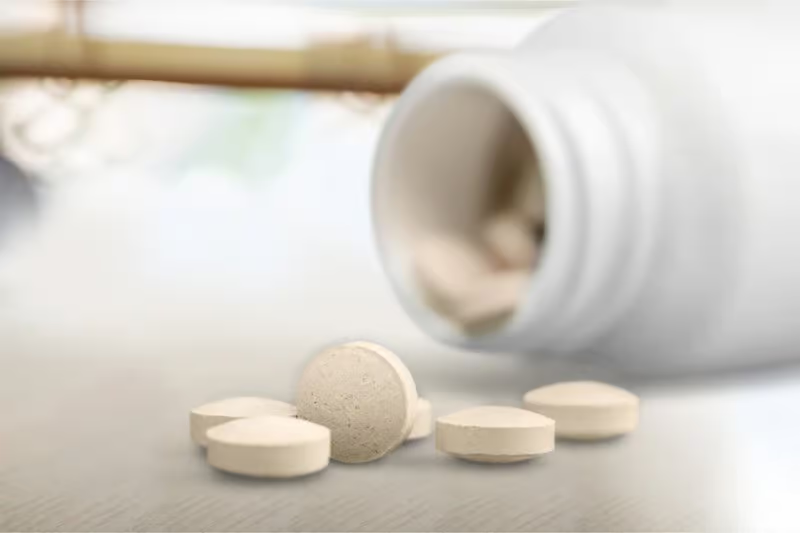
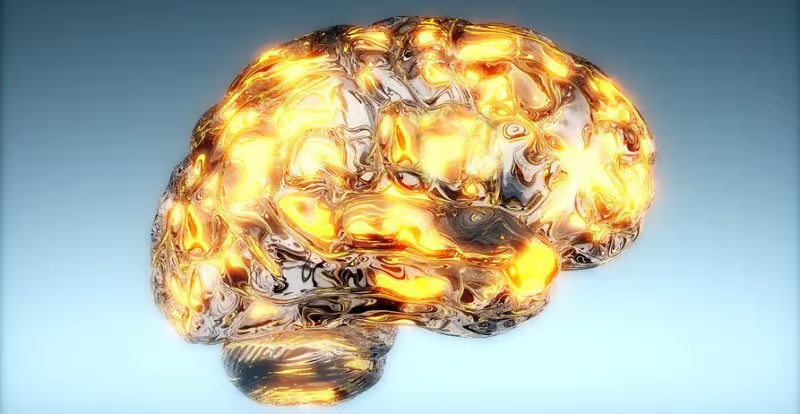






Join The Discussion - 361 comments
N
March 31, 2020
Would it be ok to give to a 13 year old that is almost 100lbs? and in what dosage?
David Tomen
March 31, 2020
N, I don’t normally advise people on dosages for nootropics for kids. Because I’m not qualified to do it. If it was my kid and she needed it I’d start her on 100 mg and see how she does with it.
Leo
February 16, 2020
Curious about how much L-tryptophan can be taken while on 50Mg of a SSRI. I eat 250 grams of protein in day from animal and whey protein all of which has L-tryptophan. I also took a “perfect amino” supplement and have been feeling minor symptoms of seratonin syndrome. Other then stopping the supplement of perfect amino is there a safe dose of L-tryptophan???
Appreciate your advice!
David Tomen
February 18, 2020
Leo, as long as you are on SSRIs there is no ‘safe dose’ of L-Tryptophan. Both affect serotonin profoundly and there’s the real danger of Serotonin Syndrome.
Wim
February 8, 2020
Hi David,
I like to follow up your advice to try Tryptophan, instead of melatonin, but I read here :
“Adding L-Tryptophan to your nootropic stack can also boost the neurotransmitters dopamine, norepinephrine … ”
if it boost norepinephrine, how will it help then with sleeping?
Are these 2 catecholamine chains then somewhere linked for Tryptophan to boost the other chain where norepinephrine is in? :
1) Tryptophan ->5-HTP->serotonin->N-Acetyl-serotonin->Melatonin
2) Tyrosine -> L-Dopa -> Dopamine -> norepinephrine->epinephrine
here in the molecular chain diagram https://en.wikipedia.org/wiki/Norepinephrine I did not see one of the catecholamine of chain 1.
thanks again
David Tomen
February 9, 2020
Wim, it took my awhile to figure out what you were talking about. Because it’s not physically possible to raise dopamine or norepinephrine with L-Tryptophan. But I found where you copied it from and deleted it. No idea how that got in there and thank you for bringing it to my attention. It’s such a fundamentally incorrect statement that I think someone must have been playing tricks on us. Glad you noticed it.
Joey Heffernan
August 3, 2020
Hello
I pulled this out of article:
https://www.ncbi.nlm.nih.gov/pmc/articles/PMC2908021/
“Tryptophan also exerts effects on other neurotransmitters and CNS compounds. Dopamine, norepinephrine, and beta-endorphin have been shown to increase following oral dosing of tryptophan.”
David Tomen
August 3, 2020
Joey, did you take a look at the clinical studies he has to support that statement? Because I do not see any evidence that using L-Tryptophan will “increase” the other catecholamines. And when you think about it it doesn’t make any logical sense. Am I missing something here?
Natalie
January 21, 2020
Hi David,
I recently decided to switch from 5 htp ( feeling sluggish and tired) to tryptophan, after having an adverse reaction to tyrosine. But it seems from these comments that you still recommend dopamine support with the tryptophan. Is there another more gentle way to support dopamine? Is there a different anxiety/ depression support nootropic you recommend?
David Tomen
January 22, 2020
Natalie, L-Tyrosine is the safest long-term way to boost dopamine synthesis. And yes, serotonin and dopamine must be in balance.
But that doesn’t mean you must take something to increase dopamine when using L-Tryptophan or 5-HTP. Most people do but everyone is different. And you may already have adequate levels of dopamine even when boosting serotonin.
I’m not saying to do either. What I am saying is trial and error and learning to listen to your body is the way to go. Know the signs of excess serotonin or dopamine. And insufficient serotonin or dopamine. And dose according to how you feel while keeping in mind safe dosage recommendations.
CE
December 2, 2019
Hi David – very much enjoy your videos and have listened to most of them as I walk daily. I am a biochem major and nutrition minor, so all the science really lights me up! I’ve been a lifetime experimenter with SJW, 5-htp, tryptophan, etc etc. For years I’ve often tried most things in search of a calmness I don’t naturally have inside me. 5htp was always my goto but like you said, its too one sided to solve the issues. Even combined with tyrosine (and the necessary cofactors), it didn’t really calm my system. L-theanine adds a calmness at times as does walking (which I do a LOT of!). 6 months ago, I ended up going to my doctor and getting an rx for lexapro, which i took 10mgs of until I got way too “in the middle” and hated. Just no real emotions, and still reasonably moody. Calmer, yes, but not very alive. I’ve since switched to half that dose and its def better for the apathy. One question I have for you – you are not someone who recommends the 5htp and i get that for sure and understand the reasons with interfering with the catecholamine side. However, does tryptophan cause this same issue if taken without a balance on the other side? I’ve often felt libido drop with 5htp after awhile as that dopamine side fades out due to the imbalance and the enzyme competition. But will this also happen with daily tryp? Thanks for the answers – i’m looking to add tryp to my stack (500 before bed) with my very small dose lexapro (5mg) in hopes of eventually dropping the lex entirely. I do know the risks of serotonin syndrome but I have experimented in the past with 5htp and my lexapro (5mg) and not had any side effects that registered as SS to me.
David Tomen
December 2, 2019
CE, Tryptophan will help boost serotonin as you know but is much more ‘forgiving’ than 5-HTP. But as serotonin goes up, dopamine goes down. Hence the need to use 500 mg L-Tyrosine at least twice during the day.
I also encourage you to look up the specific mechanism of action for the med you mentioned. And one of its side effects I think is a hit to libido.
Balance is the key and when you throw a prescription SSRI, SNRI, or one of the other acronyms into the mix it is extremely difficult to get that balance back. Because they are very focused drugs and powerful.
CE
December 2, 2019
So even the tryptophan needs the l-tyro? It makes sense, just confirming…
Yeah, the lexapro is known for this sort of thing. Its definitely dose dependent too. I’m a bigger person (6’5 225) and would have thought I required more than most people, but the 10mg (which is small enough already) is too much for me. Real hard to ‘get off’ and reasonably emotionless. Half that dose and its much better for sure. I said i’d never use these rx meds, and would prefer to get the heck off it, but i haven’t found anything that keeps me from feeling overwhelmed like the lexapro. (so far). When put under stress, I get short and irritable if I have too much going on and feel like I can’t multitask well. Then comes the shortness of breath and brain fog.
David Tomen
December 2, 2019
Yes, anything that is a direct precursor to serotonin including L-Tryptophan will raise serotonin. And needs to be in balance with dopamine.
Cath
November 6, 2019
I often feel tired, wired and struggle with staying asleep through the night. I tried 5-htp years ago and found it made me jittery and totally unable to sleep even at the lowest dose. Recently, I read tryptophan might be gentler, but I tried it and it had a similar effect.
In fact, I get similar effects from a huge range of supplements that are meant to be calming – including lemon balm, L-Glutamine, GABA and Rhodiola Rosea (it happens with higher dosages of some B-vitamins too). Holy basil helped me feel a bit calmer, but then I had to stop taking it, as it totally messed up my menstrual cycle. It seems there isn’t much I can take without being over-stimulated or getting other side effects!
I’m sensitive in general, eg caffeine and alcohol affect me more strongly than most. However, somewhat unexpectedly, I do take 500mg L-tyrosine in the morning. It helps with sluggishness and low mood. It’s the only supplement that I’ve really noticed a positive impact from without side effects (although I have to stick to that lose dosage).
Suggestions on anything that really will help me sleep are welcome! Thank you.
David Tomen
November 7, 2019
Cath, only thing I can offer is the posts on sleep that I’ve published which list the most effective nootropics available for sleep. https://nootropicsexpert.com/best-nootropics-for-sleep/
But it’s up to you to continue trying different things until you find something that agrees with you and works.
My wife reacts to nootropic supplements just like you and refuses to use most of the things that help most people. She does find that Kratom and CBD help her sleep. I’ve written reviews for both so you may want to check them out as well.
Kenneth
October 31, 2019
Hi David,
Just wondering what your thoughts are about Kanna (Sceletium)?
Thanks
David Tomen
October 31, 2019
Kenneth, I have not done extensive research on Sceletium tortuosum. Only that you need to be cautious using it long-term or with SSRIs or MAOIs. Because of its mechanism of action in your brain. Other than that I have no educated opinion on it as a nootropic.
Maicon
October 12, 2019
Do I want to maintain serotonin maintenance, tryptophan or 5-HTP?
David Tomen
October 14, 2019
Maicon, L-Tryptophan is safer and more forgivable because there’s a couple of steps before making serotonin. 5-HTP on the other hand is the direct precursor to serotonin synthesis and it’s very easy to use too much unless you’re very experienced with dosing these supplements.
Maicon
October 15, 2019
serotonin or tryptophan increases confidence?
David Tomen
October 15, 2019
Maicon, it could if you are low in serotonin. An increase in that case will calm you and hopefully provide a boost in confidence.
Maicon
October 16, 2019
what is the best precursor of confidence?
David Tomen
October 17, 2019
Maicon, the best precursor of confidence is feeling great. So whatever you need in your nootropic stack to get to that feeling. Along with plenty of sleep, a good diet, great relationships, optimal hormones … and whatever else it takes to have Maicon feeling good. Adequate serotonin levels is certainly part of that.